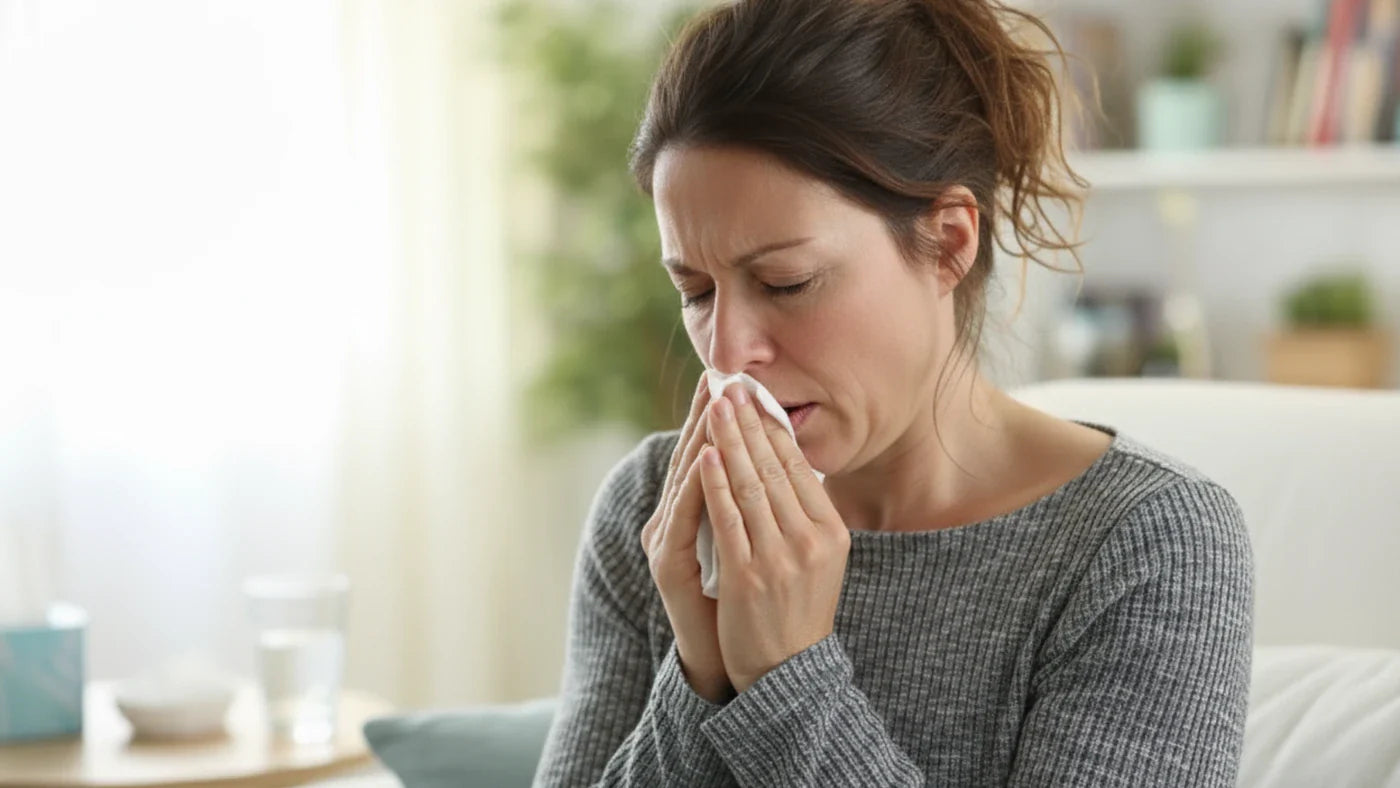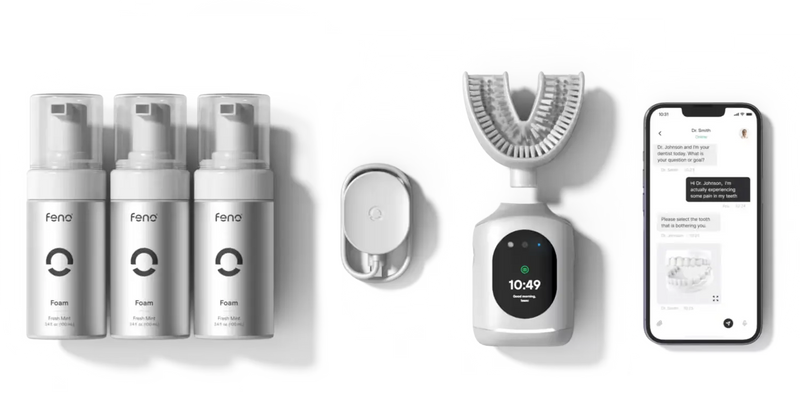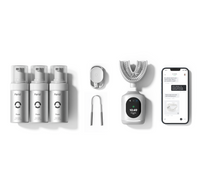
Seasonal Allergies & Oral Health
Essential Takeaways
- Seasonal allergies and antihistamine medications significantly increase your risk of cavities and gum disease by reducing saliva production and promoting mouth breathing. Simple preventive measures like staying hydrated, chewing sugar-free gum, and maintaining consistent oral hygiene can protect your dental health during allergy season.
Why Seasonal Allergies Are a Dental Health Concern
If you suffer from seasonal allergies, your oral health may be silently suffering too. The connection between seasonal allergies and dental problems is well-documented in clinical research, yet many allergy sufferers remain unaware of the risks.
Nasal congestion forces mouth breathing, while antihistamine medications reduce saliva flow, creating the perfect storm for tooth decay and gum disease.
(Frontiers in Public Health, 2022)
The Science Behind Allergies and Oral Health
How Antihistamines Cause Dry Mouth
Antihistamines block histamine receptors throughout your body, including in your salivary glands. Research confirms that antihistamines significantly reduce saliva production, a condition known as xerostomia.
Why this matters: Saliva neutralizes harmful acids, washes away food particles, and contains antimicrobial compounds that fight cavity-causing bacteria. When antihistamines reduce saliva flow, your teeth become vulnerable to decay.
The Mouth Breathing Problem
Nasal congestion forces many people to breathe through their mouths, especially at night. Studies show that chronic mouth breathing:
- Dries oral surfaces, creating an environment where bacteria thrive
- Increases volatile sulfur compounds that cause bad breath
- Irritates gum tissue, elevating gingivitis risk
- Reduces the protective saliva coating on teeth
Research-Backed Risks
The American Dental Association and peer-reviewed studies in journals like Oral Diseases document clear evidence that dry mouth from allergies and antihistamines significantly increases cavity risk, gum disease rates, and dental erosion while intensifying bad breath.
Protective Strategies
1. Hydrate Consistently
Drink water regularly throughout the day, small, frequent sips work best. Water helps compensate for reduced saliva and rinses away allergens and food particles.
2. Chew Sugar-Free Gum with Xylitol
Chewing stimulates saliva production naturally. Choose gum containing xylitol, which research shows can reduce cavity-causing bacteria. Chew for 20 minutes after meals and medications.
3. Rinse After Medication
After taking antihistamines, rinse with water or alcohol-free mouthwash. This clears medication residue and stimulates saliva flow. Avoid alcohol-based mouthwashes, which worsen dry mouth.
4. Maintain Oral Hygiene
Even when feeling miserable, brush twice daily with fluoride toothpaste, floss once per day, and consider using a fluoride mouth rinse for extra protection.
5. Use a Humidifier at Night
If nasal congestion causes nighttime mouth breathing, a bedroom humidifier adds moisture to the air and prevents severe oral dryness while you sleep.
6. Consider Saliva Substitutes
For severe dry mouth, over-the-counter saliva substitutes and oral moisturizers can provide relief. Ask your dentist or pharmacist for recommendations.
When to See Your Dentist
Schedule an appointment if you experience dry mouth persisting beyond allergy season, increased tooth sensitivity, bleeding gums, new cavities, or persistent bad breath despite good oral hygiene.
FAQ: Allergies and Oral Health
Q: Can I switch to a different allergy medication that won't cause dry mouth?
A: Most antihistamines affect saliva production, but newer-generation medications (like cetirizine or loratadine) may have fewer effects. Consult your doctor about options.
Q: How long does it take for dry mouth to damage teeth?
A: Tooth decay can begin within weeks if dry mouth is severe and unmanaged. Risk increases with longer duration and severity.
Q: Will drinking more water completely prevent dry mouth from antihistamines?
A: While hydration helps, it cannot fully compensate for medication-induced reduced saliva production. A combination of preventive strategies works best.
Bottom Line: Protect Your Whole Airway
Seasonal allergies affect your entire respiratory system including your mouth. The combination of antihistamine medications and mouth breathing creates real risks for tooth decay, gum disease, and bad breath. However, with evidence-based preventive care and consistent oral hygiene, you can manage allergy symptoms while protecting your dental health for the long term.
Don't let allergy season compromise your smile. Stay hydrated, maintain your oral care routine, and talk to your dentist about additional protective measures if you're a chronic allergy sufferer.
Pro tip: Allergy season can make daily brushing feel like a chore, especially with dry mouth or congestion. The Feno Smartbrush™ makes it easier to stay consistent, delivering a full-mouth clean in just 20 seconds and tracking your gum health over time. See how it works.

Feno Founders Edition Bundle
Advanced Oral Health in 20 Seconds with the Feno Smartbrush™
Get Yours Now!





